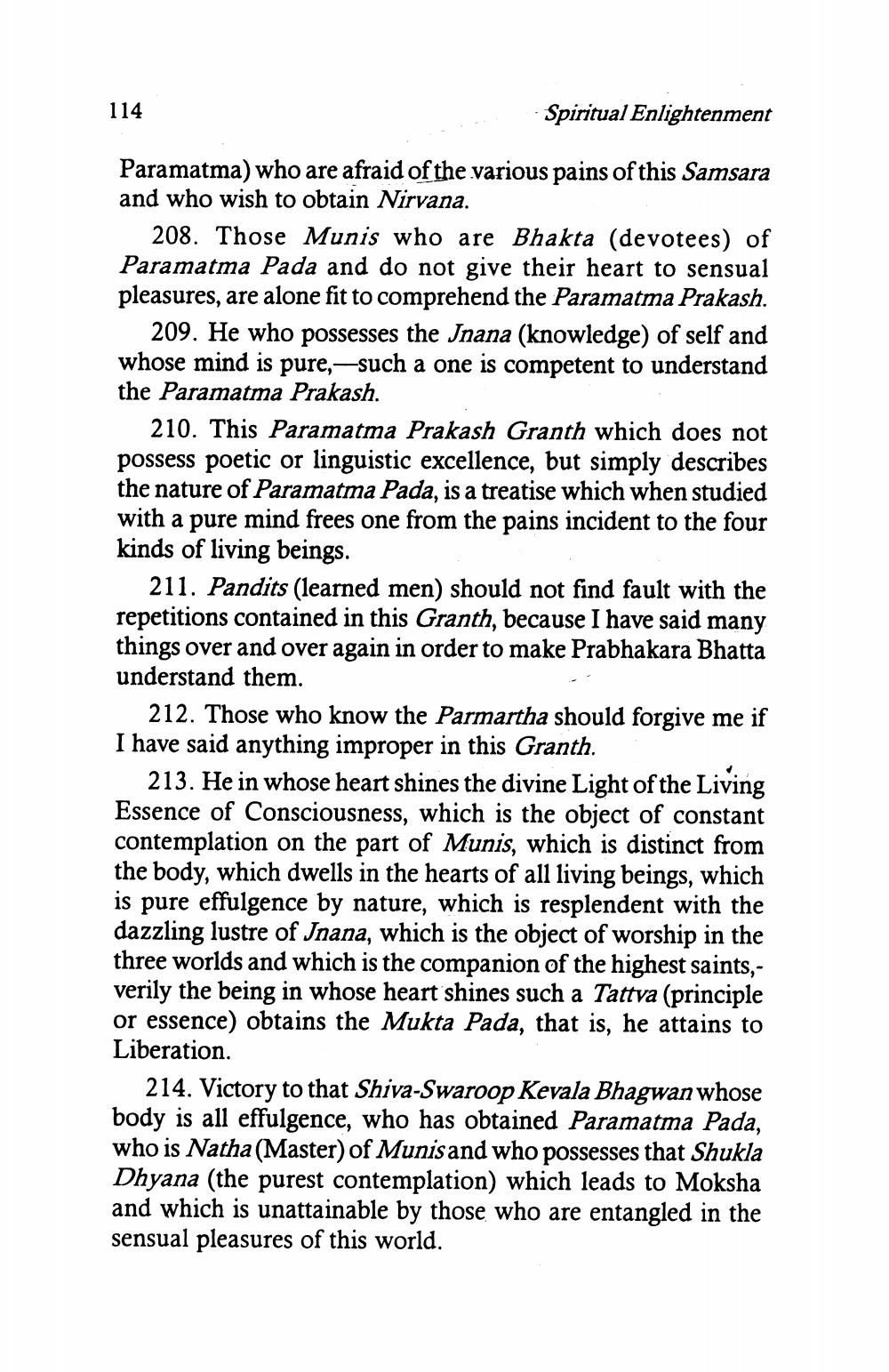________________
114
Spiritual Enlightenment
Paramatma) who are afraid of the various pains of this Samsara and who wish to obtain Nirvana.
208. Those Munis who are Bhakta (devotees) of Paramatma Pada and do not give their heart to sensual pleasures, are alone fit to comprehend the Paramatma Prakash.
209. He who possesses the Jnana (knowledge) of self and whose mind is pure,—such a one is competent to understand the Paramatma Prakash.
210. This Paramatma Prakash Granth which does not possess poetic or linguistic excellence, but simply describes the nature of Paramatma Pada, is a treatise which when studied with a pure mind frees one from the pains incident to the four kinds of living beings.
211. Pandits (learned men) should not find fault with the repetitions contained in this Granth, because I have said many things over and over again in order to make Prabhakara Bhatta understand them.
212. Those who know the Parmartha should forgive me if I have said anything improper in this Granth.
213. He in whose heart shines the divine Light of the Living Essence of Consciousness, which is the object of constant contemplation on the part of Munis, which is distinct from the body, which dwells in the hearts of all living beings, which is pure effulgence by nature, which is resplendent with the dazzling lustre of Jnana, which is the object of worship in the three worlds and which is the companion of the highest saints,verily the being in whose heart shines such a Tattva (principle or essence) obtains the Mukta Pada, that is, he attains to Liberation.
214. Victory to that Shiva-Swaroop Kevala Bhagwan whose body is all effulgence, who has obtained Paramatma Pada, who is Natha (Master) of Munis and who possesses that Shukla Dhyana (the purest contemplation) which leads to Moksha and which is unattainable by those who are entangled in the sensual pleasures of this world.




